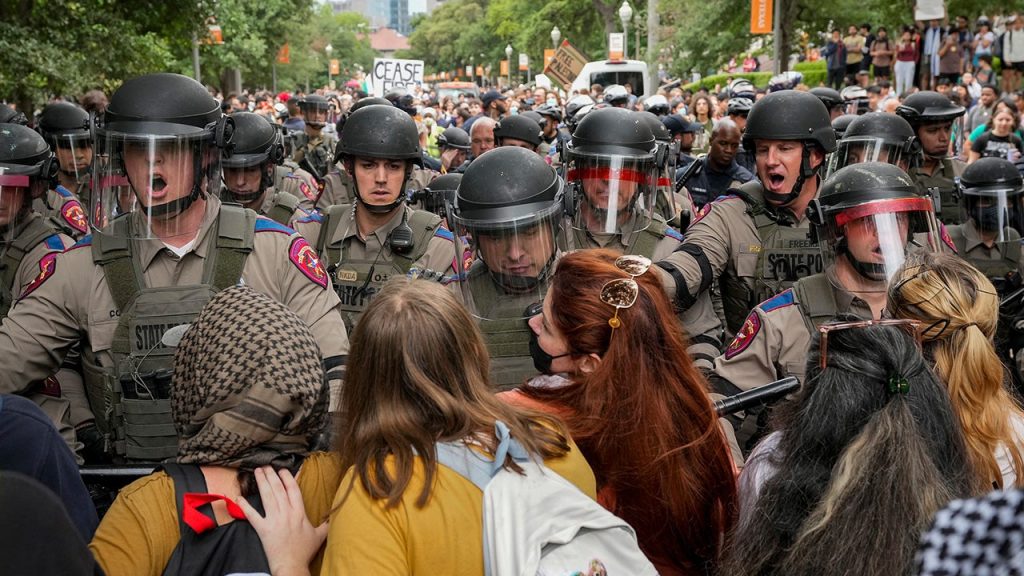In a recent interview, University of Tehran professor Foad Izadi expressed support for protests on U.S. college campuses, stating that Iran views these protesters as potential supporters in the event of a conflict between the two countries. Izadi, a member of the Islamic Republic, emphasized the importance of demonstrations against American support for Israel, noting that the diminishing of this support is significant for Iran. He also highlighted the role of Iran in promoting the idea of resistance, particularly in relation to the Palestinian cause. Izadi suggested that American students who participate in these protests are considered to be allies of Iran and may be called upon to support the country in times of heightened tensions.
Izadi stated that there are Hezbollah-style groups in the U.S. that are larger than those in Lebanon, emphasizing Iran’s view of America as the “Great Satan” and its primary enemy. This viewpoint is consistent with the Iranian regime’s focus on expanding its influence beyond its borders. Iran expert Lisa Daftari provided insight into Izadi’s comments, criticizing the regime for applauding protests on American campuses while perpetrating atrocities against its own college students. Daftari highlighted Iran’s efforts to support terror proxies in the region and infiltrate American universities, suggesting that the regime is seeking to manipulate the momentum of anti-Israel protests to further its agenda in the West.
Daftari also noted the suffering of the Iranian people under their current leaders, whom she described as “barbaric.” She raised the question of whether Iran’s focus on increasing its influence in the West would lead to physical attacks or an information war, or both. The comments from Izadi shed light on Iran’s strategy of leveraging anti-Israel sentiment to advance its interests on the world stage. Despite the regime’s oppressive actions within Iran, it seeks to cultivate support and partnership with like-minded individuals and groups internationally, including on college campuses in the U.S.
The interview with Izadi serves as a reminder of the complex dynamics between Iran and the United States, with tensions between the two countries playing out on a global scale. The support for protests on American college campuses reflects Iran’s effort to mobilize potential allies and build networks of influence beyond its borders. The regime’s emphasis on resistance and opposition to American policies illustrates its commitment to challenging perceived adversaries, particularly in the context of the Israeli-Palestinian conflict. As the Iranian regime continues to pursue its agenda both domestically and internationally, the implications of its actions on the global stage remain a subject of ongoing concern and scrutiny.


